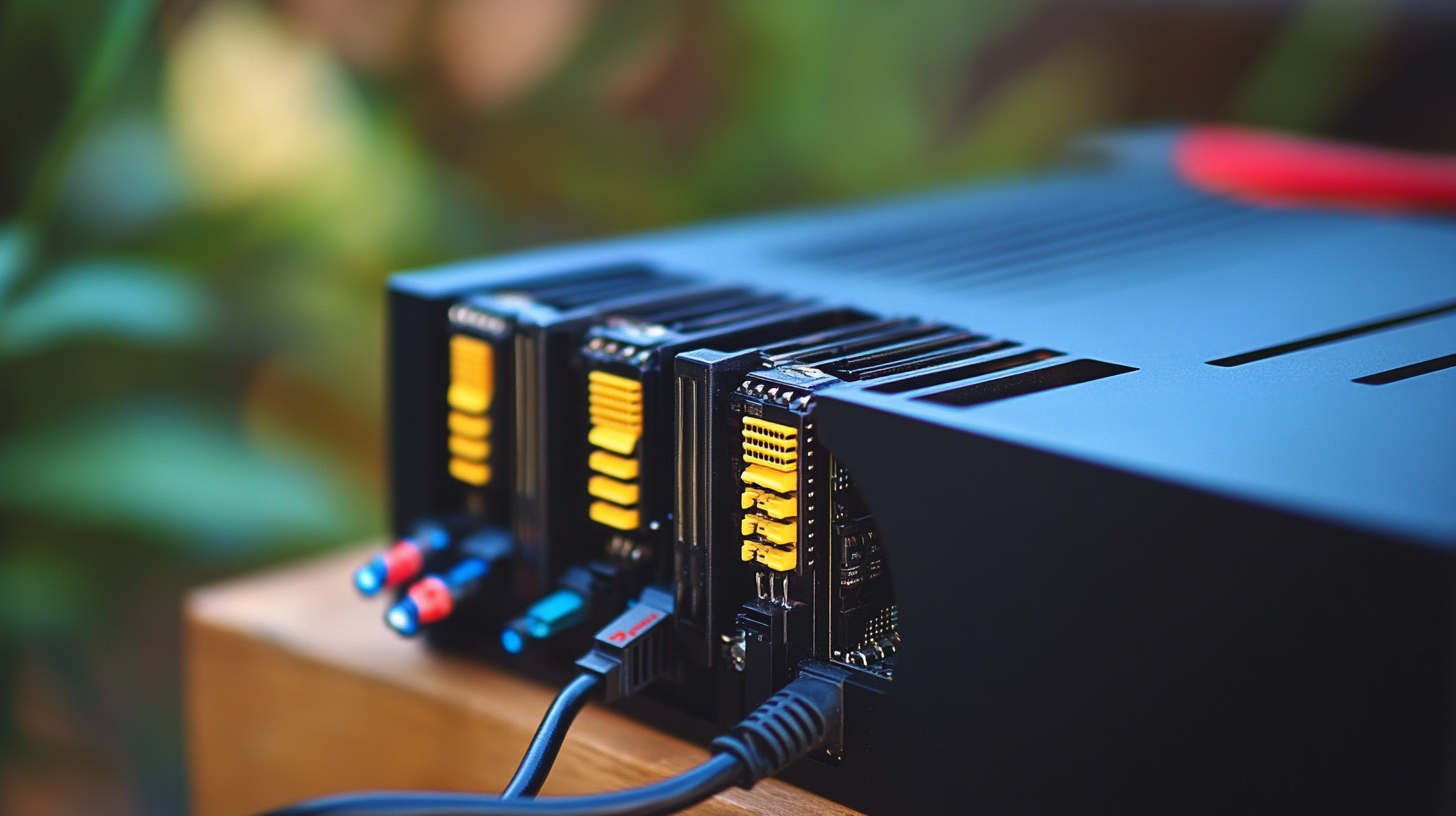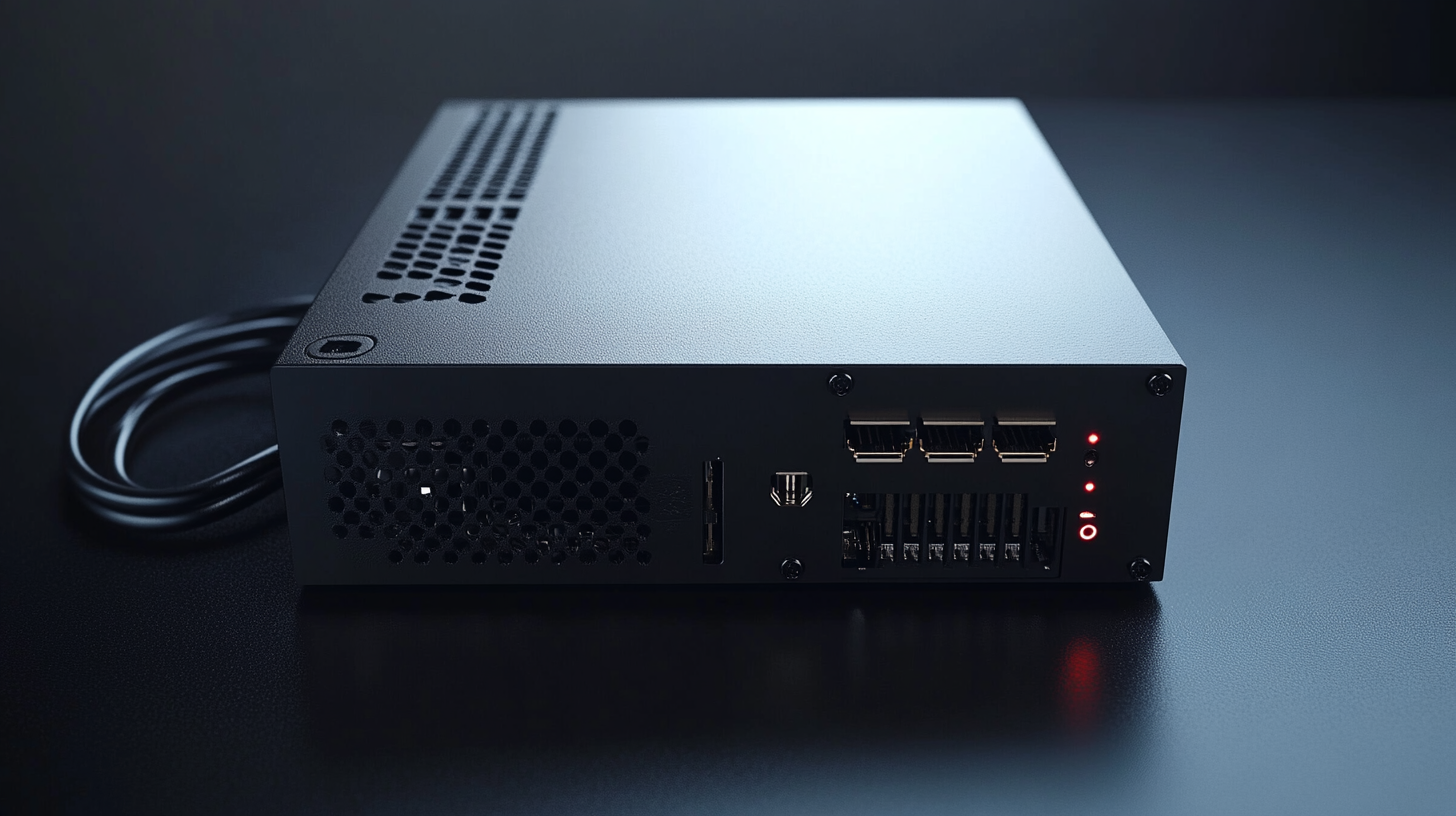Blog
Ultimate Guide to Choosing the Right 12v Power Supply for Your Business Needs
In today's rapidly evolving technological landscape, the demand for reliable and efficient power solutions has never been more crucial. A recent industry report by Smith & Associates highlights that the global market for power supplies, particularly 12v power supplies, is projected to reach $16.5 billion by 2025, driven by the increasing adoption of electronic devices across various sectors. For businesses that rely on these power supplies for everything from digital signage to telecommunications equipment, selecting the right 12v power supply is essential. Given the numerous options available, understanding the specific energy requirements, efficiency ratings, and safety certifications is vital for optimizing operational efficiency and ensuring longevity of devices. This ultimate guide will walk you through the key considerations for choosing the right 12v power supply tailored to your business needs, ensuring you make an informed decision that supports your operational goals.

Understanding Different Types of 12v Power Supplies Available in the Market
When it comes to selecting the right 12V power supply for various business needs, understanding the different types available in the market is crucial. The market is experiencing a notable shift, especially with the rise of 12V lithium batteries, which are increasingly replacing traditional lead-acid batteries in vehicles. These advancements not only enhance efficiency but also open up new opportunities for various applications in automotive and other industries. Businesses that leverage these modern power supplies can enjoy improved performance and reliability.
Another emerging trend in the automotive world is the transition toward 48V systems. This low-voltage architecture is gaining traction due to its potential for improving fuel efficiency in hybrid vehicles. With more manufacturers exploring these options, it's essential for businesses to stay informed about the differences between 12V and 48V power supplies. While 12V systems have been a standard in vehicles for decades, the evolution of more complex power supply systems means that businesses need to assess their specific energy requirements carefully. Understanding the nuances between these options will help businesses make informed decisions that meet their operational needs effectively.

Key Factors to Consider When Selecting a 12v Power Supply for Your Business
When choosing the right 12V power supply for your business, it's essential to consider several key factors that can significantly impact performance and efficiency. Firstly, understanding the power requirements of your specific applications is crucial. Reports indicate that traditional 12V systems face increasing limitations, such as high current draw and greater line loss, which can affect the overall efficiency of various industrial and automotive applications. This has led to an industry shift toward alternative voltage systems, particularly the emerging 48V power supply trend, designed to improve energy efficiency and reduce wiring complexity.
Another critical aspect to consider is the reliability and durability of the power supply unit. Recent advancements in power distribution technology highlight the necessity for robust designs that can withstand the demands of high-performance environments. Choosing a power supply that meets or exceeds industry standards for thermal performance and power density can ensure long-term reliability, especially as businesses begin to embrace more sophisticated technologies such as AI-driven applications which require stable and efficient power delivery.
Lastly, compatibility with existing systems is a vital consideration. As various sectors increasingly adopt hybrid systems employing both 12V and 48V infrastructures, selecting a power supply that supports such configurations can enhance operational flexibility and scalability. Ensuring that your power supply can seamlessly integrate with various devices and systems will be key to maintaining productivity and supporting future growth initiatives.

Assessing the Power Requirements of Your Equipment for Optimal Performance
When selecting the appropriate 12V power supply for your business needs, it is crucial to assess the power requirements of your equipment carefully. Understanding the specific demands of your devices ensures optimal performance and avoids potential power shortages. For example, in server rooms, the average power consumption can reach around 300 watts per server, making it essential to factor in the cumulative energy requirements when planning your power supply. According to recent evaluations, data centers often experience inefficiencies that can lead to energy waste, emphasizing the need for precise calculations and smart management strategies.
Moreover, advancements in technology, such as machine learning algorithms used for energy consumption prediction in electric vehicles, highlight the effectiveness of data-driven approaches in optimizing power usage. By analyzing energy patterns, businesses can implement more efficient power systems and reduce operational costs. Furthermore, the integration of renewable energy sources in microgrids has emerged as a key method to enhance energy reliability and sustainability. Employing a combined power quality index can facilitate better assessments of various power systems, ensuring your chosen 12V power supply aligns with the evolving demands of modern technology.
Power Supply Requirements for Business Equipment
Comparing Cost, Efficiency, and Reliability of 12v Power Supply Options
When it comes to selecting the right 12v power supply for your business needs, efficiency and reliability are paramount. A wide range of 12v power supply options are available, each with its own cost and operational advantages. Recent studies indicate that high-efficiency power supplies, such as the Cooler Master V 850 SFX Gold and Be Quiet Dark Power Pro 13, stand out for their compact design and robust performance. These models not only deliver reliable power but also offer significant energy savings, which can have a positive impact on your operating costs over time.
Additionally, for businesses looking for portable power solutions, the EcoFlow Delta 3 Plus has emerged as a top contender in the market. With a formidable output of 2400W and a 1024Wh battery, it provides excellent versatility for on-the-go applications, ensuring that you remain powered, whether in the office or out in the field. As power outages become more common, integrating a dependable power supply with backup capabilities can safeguard your operations, allowing business continuity without interruption. Choosing the right power supply, therefore, not only meets immediate energy requirements but also enhances overall efficiency and reliability within your organization.
Ultimate Guide to Choosing the Right 12v Power Supply for Your Business Needs
| Power Supply Model | Cost (USD) | Efficiency (%) | Reliability (MTBF) | Warranty (Years) |
|---|---|---|---|---|
| Model A | 150 | 90 | 50,000 hours | 3 |
| Model B | 200 | 85 | 75,000 hours | 5 |
| Model C | 180 | 95 | 60,000 hours | 4 |
| Model D | 160 | 88 | 40,000 hours | 2 |
Common Mistakes to Avoid When Choosing a 12v Power Supply for Business Applications
When selecting a 12v power supply for business applications, avoiding common pitfalls is crucial for optimal performance and reliability. One major mistake is underestimating the power requirements. Businesses often overlook the cumulative wattage needed when multiple devices are powered simultaneously. It’s essential to assess not only the wattage required by each device but also to account for peak power demands. Failure to do so can lead to power shortages, inadequate performance, or even damage to connected equipment.
Another error is neglecting the quality and type of power supply. Many businesses opt for the cheapest option without considering factors like efficiency, durability, and noise levels. A low-quality power supply can result in voltage fluctuations and electromagnetic interference, affecting sensitive equipment. It’s advisable to invest in a reputable brand, ensuring that the power supply meets industry standards. Additionally, examining the environmental conditions where the power supply will be installed—such as temperature and humidity levels—can help in selecting a unit that lasts longer and operates efficiently under varying conditions.
